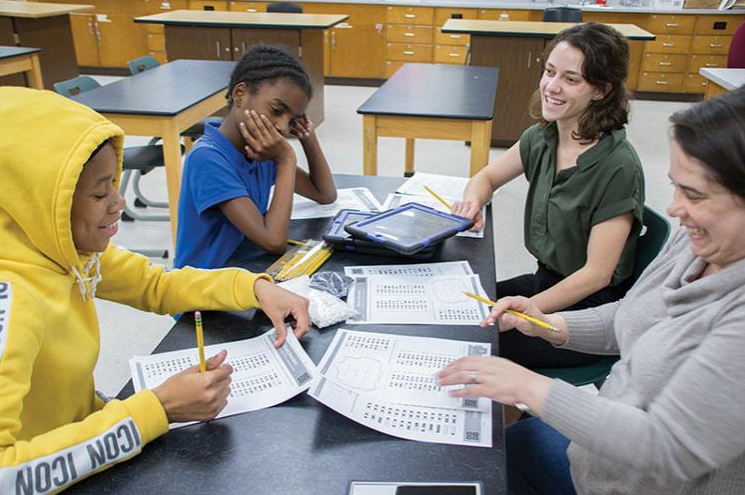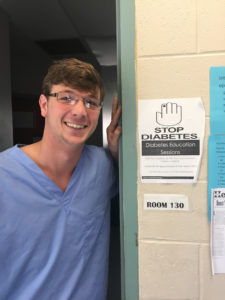Toni Nigro, a student in Oklahoma State University Center for Health Sciences’ Doctor of Osteopathic Medicine program, is working hard to prepare for a career as a family physician.
Even so, every week she and guests from the medical and scientific communities demonstrate STEM projects to sixth- through eighth-grade girls at Daniel Webster Middle School.
“It could be anything from learning what DNA is to showing them a real human brain,” Nigro says. “We also brought in some robotics and showed them what programming is.”
This science, technology, engineering and math work isn’t a side project — it’s part of Nigro’s growth as a medical professional, as well as a way to improve the overall health of Oklahoma. Her project and dozens of others came about due to the Albert Schweitzer Fellowship, a 12-month program designed to address unmet health needs and develop the next generation of health leaders.
Rachel Gold, program director for the Tulsa Schweitzer Fellowship, says the Fellowship uses a broad definition of health. It views health as not just an absence of disease, but as a complete state of physical, mental and social well-being.
Read more here.




